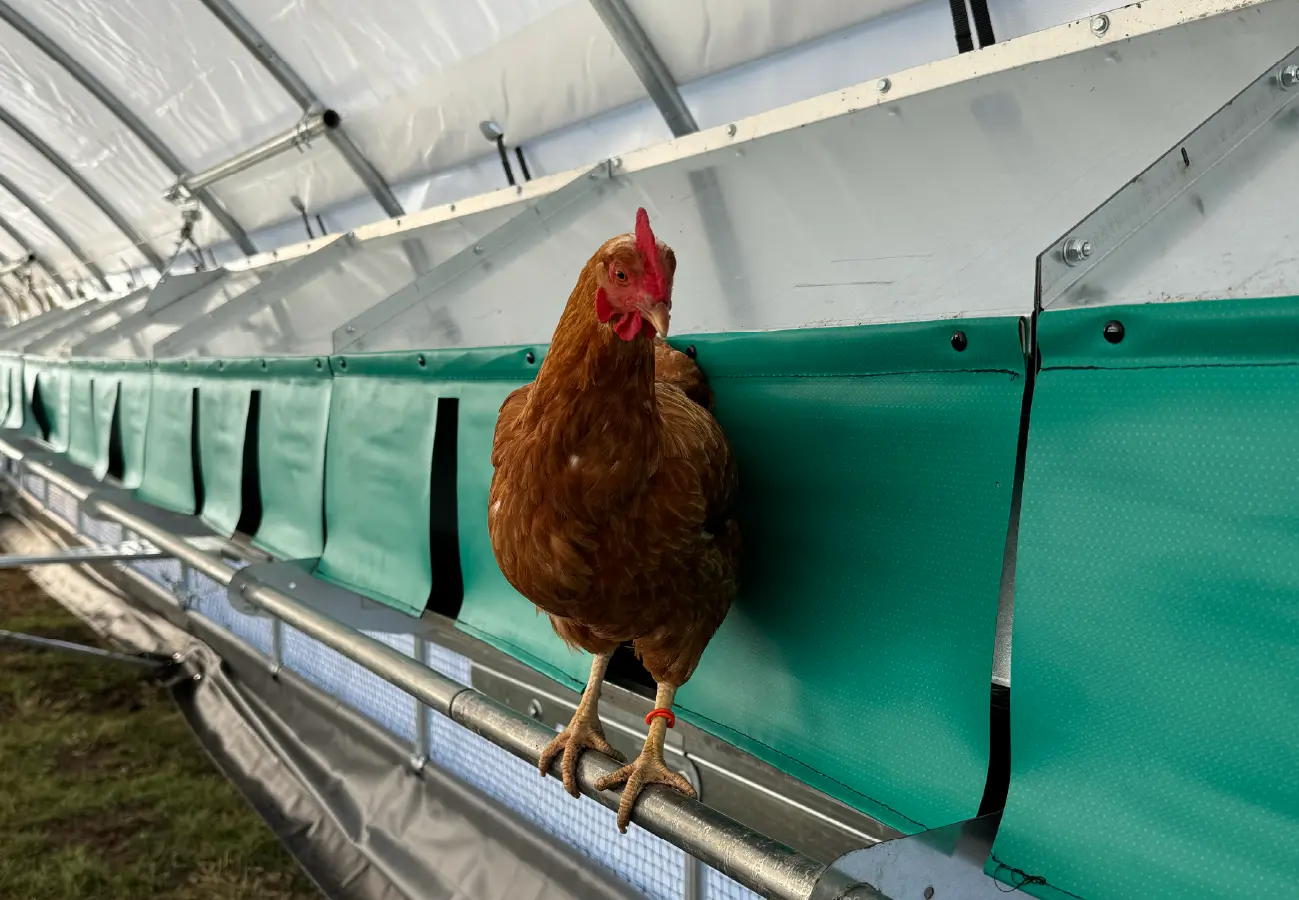
Why Go Mobile With Chicken Coops?
Mobile chicken coops, also known as chicken tractors or robotic pasture barns, allow farmers to move their flock around the farm easily.
This mobility is not just a convenience (although it can cut farm labor by up to 90%)—it also serves several important purposes in regenerative agriculture:
Soil Health and Fertility
As chickens graze, they eat pests and weeds, reducing the need for chemical pesticides and herbicides.
Their natural behavior of scratching and pecking helps aerate the soil, and their droppings add valuable nutrients back into the land, enriching soil fertility without synthetic fertilizers.
Pest and Weed Control
Chickens are natural foragers. By moving them around, they can target different areas of your farm, eating up unwanted bugs and weeds. This helps control pest populations and keeps weed growth in check, all without harmful chemicals.
Improved Animal Welfare
Mobile coops ensure that chickens have access to fresh ground regularly, which promotes healthier, happier birds. They get to enjoy a natural environment, with access to fresh air, sunlight, and a varied diet which improves their well-being and leads to higher-quality eggs and meat.
Reduced Feed Costs
With access to a diverse range of natural food sources, chickens in mobile coops often require less supplementary feed. This can significantly reduce feed costs over time.
Integration Into Crop Rotation
Mobile chicken coops can be seamlessly integrated into crop rotation systems (as long as the crop isn’t too stocky, like corn). After one crop is harvested, chickens can be moved in to clean up the field, eating leftover crop residues and pests, while fertilizing the soil for the next crop.
At our UKKÖ test farm, we do this when we sow alfalfa in our fields to give our land a break for three to five years and put our chickens on it a little at a time. Chickens love leafy greens!
One thing to note: chickens take a long time before covering a lot of land. So, if you’re doing this after harvest and have 1000 acres, you may only cover five to ten acres of land per year.

Making the Most of Mobile Chicken Coops
To fully harness the benefits of mobile chicken coops in regenerative farming, consider the following tips:
Plan Your Moves
Strategic planning of where and when to move the coop can maximize benefits for soil health and crop production. Rotate your chickens through different areas to ensure even distribution of their natural fertilization.
Balance is Key
Monitor the impact of your chickens on the land. Overgrazing or over-fertilization can harm soil health, so finding the right balance based on your land's size and the number of chickens is crucial.
Incorporate Technology
At UKKÖ, we engineer solutions that simplify the management of mobile coops.
Technologies like automated moving systems, water, and feed supplies, as well as monitoring tools, can make it easier to manage your flock and enhance the benefits of using mobile coops.
Educate Yourself and Others
Stay informed about best practices in regenerative farming and mobile coop management. Sharing knowledge with other farmers can lead to innovations and improvements in how we farm regeneratively.











